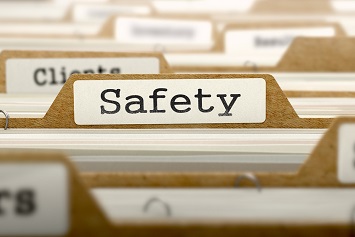The Occupational Safety and Health Administration (OSHA) has issued an enforcement memorandum instructing its inspectors to use discretion in enforcing injury and illness recordkeeping requirements for cases of COVID-19. The use of enforcement discretion does not apply to corrections, emergency services, healthcare, and law enforcement employers.
OSHA said employers should focus their efforts on establishing and maintaining good hygiene practices.
COVID-19 is a respiratory disease caused by the SARS-CoV-2 virus first identified in Wuhan City, China, in December 2019.
The agency acknowledged that some employers may have difficulty determining whether employees have contracted COVID-19 due to exposures at work.
Employers must record an illness in their Log of Work-Related Injuries and Illnesses (OSHA Form 300) if an employee has a confirmed illness that is work-related that results in death, days away from work, restricted work or transfer to another job, medical treatment beyond first aid, or loss of consciousness. In the case of COVID-19, it would involve a confirmed case as defined by the Centers for Disease Control and Prevention (CDC). The CDC’s current criterion for diagnosis is at least one respiratory specimen that tested positive for SARS-CoV-2, the virus that causes COVID-19.
Ongoing community transmission makes determining work-relatedness difficult for most employers. However, employers in correctional facilities; emergency response organizations, such as emergency medical, firefighting, and law enforcement services; and the healthcare industry must continue to make work-relatedness determinations.
OSHA will not enforce regulations requiring other employers to make the same work-relatedness determinations, except where:
- There is objective evidence that a COVID-19 case may be work-related, such as a number of cases developing among workers who work closely together without an alternative explanation; and
- The evidence of work-relatedness was reasonably available to the employer, such as information given to the employer by employees and information an employer learns regarding its employees’ health and safety in the ordinary course of managing its business and employees.
OSHA said the policy will help employers focus their efforts on implementing good hygiene practices in their workplaces to mitigate COVID-19’s effects while there is widespread community transmission rather than on making difficult work-relatedness decisions.
The agency last month issued guidance on preparing workplaces for the COVID-19 pandemic. Steps that OSHA recommends include:
- Developing a plan for infection prevention and response and staying informed about recommendations from federal, state, local, tribal, and/or territorial public health authorities;
- Developing policies and procedures for promptly identifying and isolating sick employees;
- Cross-training employees so operations can continue in the event other employees are absent due to the coronavirus infection, as well as preparing for supply chain disruptions;
- Taking steps to reduce employee exposures, such as allowing employees to telecommute, delivering services remotely, downsizing operations, staggering work shifts, and ensuring employees practice social distancing;
- Encouraging employees to practice proper cough and sneeze etiquette and frequent and thorough hand-washing, and
- Routinely cleaning and disinfecting surfaces and equipment in the work environment with products approved by the Environmental Protection Agency (EPA) as effective against the SARS-CoV-2 virus.

